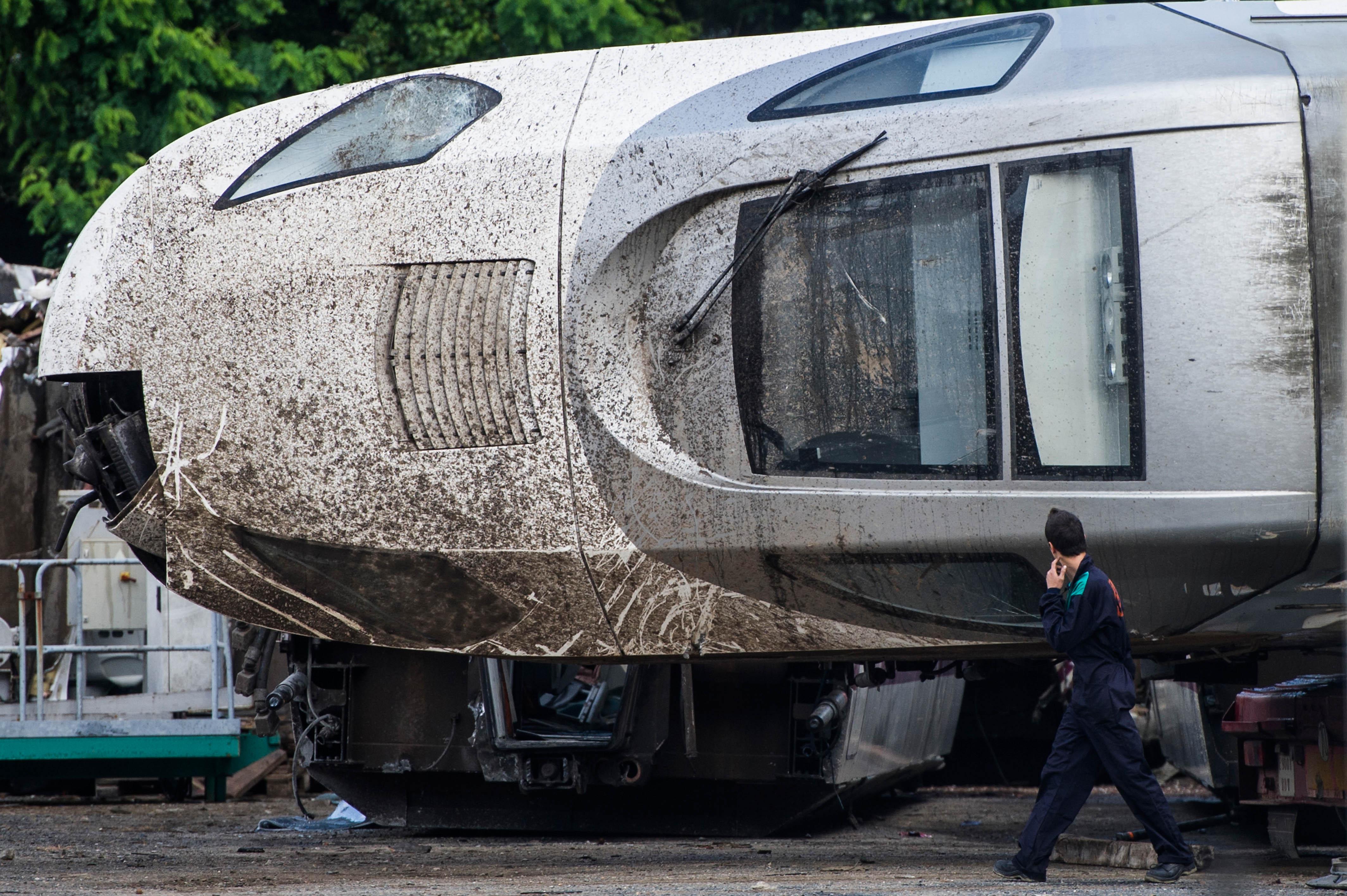Crime is Slate’s crime blog. Like us on Facebook, and follow us on Twitter @slatecrime.
Last Wednesday a Spanish high-speed train derailed and crashed outside the city of Santiago de Compostela, killing 79 people. Now, the train’s driver will be held criminally liable for allegedly taking a curve too fast and causing the wreck. Reuters reports that 52-year-old Francisco Garzon has been provisionally charged with 79 counts of homicide “committed through professional recklessness.” Prosecuting Garzon might satisfy some Spaniards’ desire for vengeance and accountability in the wake of this disaster. But it’s a bad precedent to set.
For one thing the extent of Garzon’s culpability isn’t yet clear. He was in charge of the train when the train crashed, and has allegedly admitted to “a momentary lapse” that led him to go too fast into the fateful curve. Beyond that, several questions remain. Does the blame rest entirely with Garzon? Did equipment malfunctions contribute to the disaster? Garzon has said that he “had needed to brake but couldn’t.” What does that mean? These are the sorts of questions that an investigation ought to clear up, and, ideally, the Spanish authorities would have conducted the investigation before bringing charges against Garzon. Instead, the rush to file charges seems like an exercise in scapegoating.
Even if an investigation finds that all equipment was working perfectly and the crash was entirely Garzon’s fault, it’s still not clear that this should be a criminal case rather than a civil one. The goal of criminal prosecutions in cases like this is always twofold: justice for the victims, and prevention of similar accidents in the future. But pursuing the first goal can make it harder to achieve the second. As I wrote two weeks ago in a piece about the prosecution of Francesco Schettino, the cruise ship captain who allegedly caused the wreck of the Costa Concordia liner through gross negligence, criminal prosecutions in cases like these might just end up making mass transit more dangerous, by encouraging operators to hide or lie about their errors and impede post-crash investigations. In a 2010 paper for the International Journal of Applied Aviation Studies, Sidney Dekker wrote that “criminal prosecution of professionals such as pilots, air traffic controllers, or mechanics is increasingly seen as a threat to safety. Its effect on willingness to report and disclose safety-related information is well documented.” In other words, criminal prosecutions can serve to promote opacity instead of transparency.
In the United States, mass transit operators are generally only prosecuted if they were intoxicated, or texting, or otherwise grossly negligent. The United States probably would not seek charges against a driver who, like Garzon, was apparently going too fast and simply forgot to apply the brake, in some momentary lapse of attention or judgment. And I think that’s wise.
